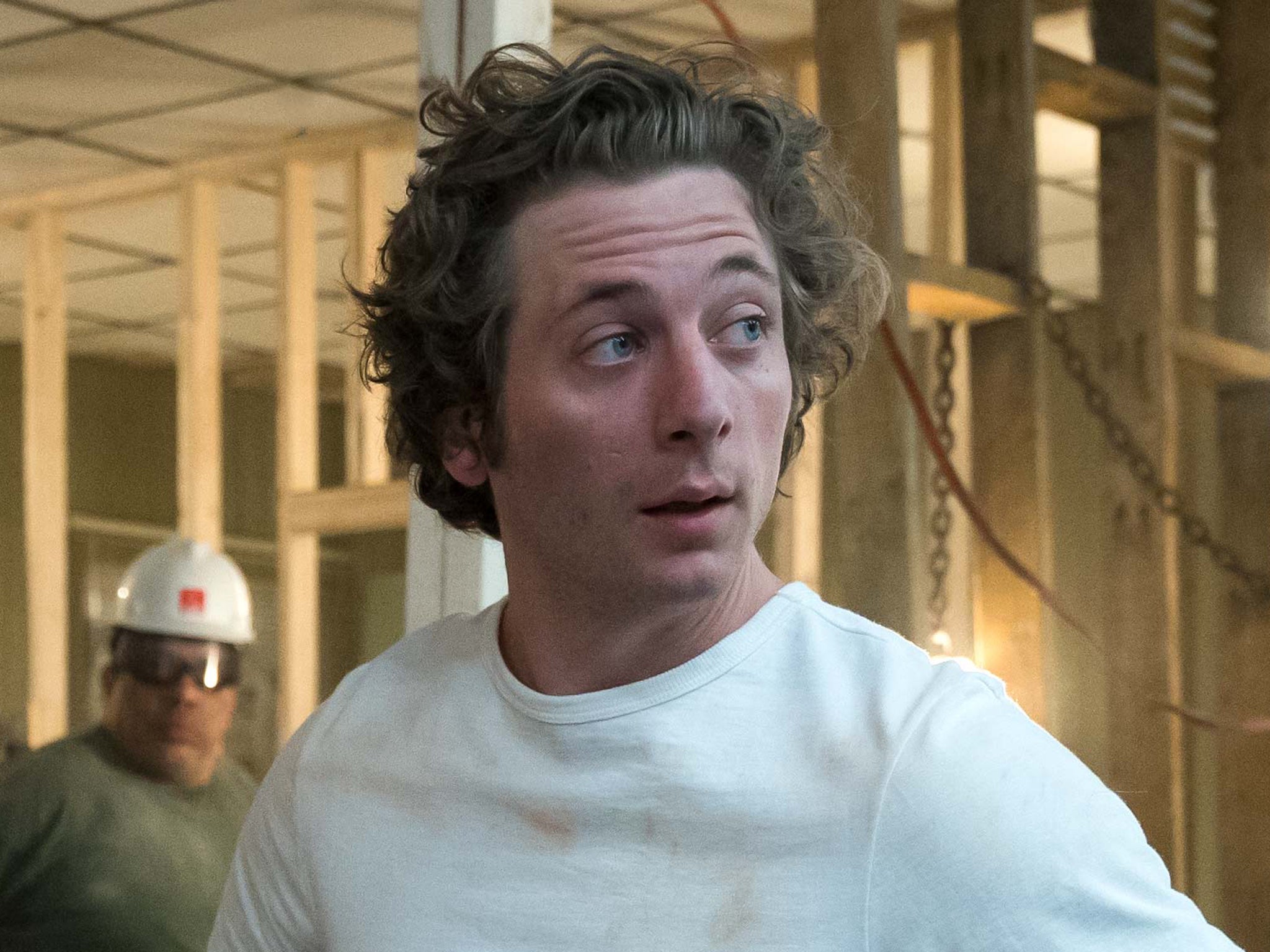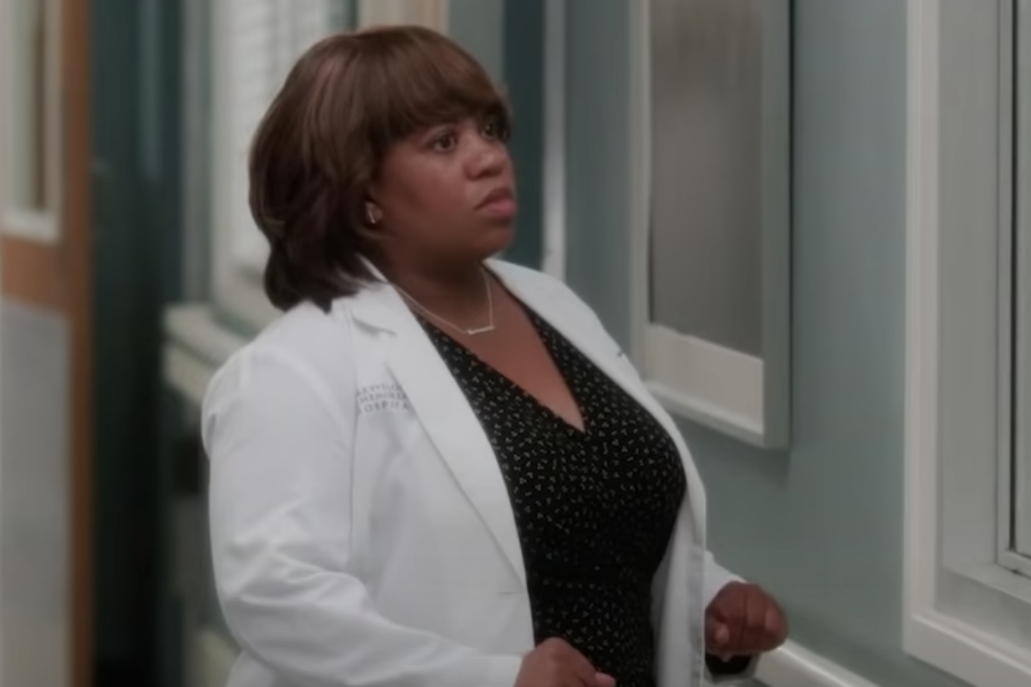‘Every second counts’: From The Bear to Industry, why workplace culture makes for brilliant TV drama
Restaurant drama ‘The Bear’ is electrifying to watch, but its relationships are ones we recognise from ‘The West Wing’, ‘Call My Agent!’ and many more. They’re the stuff of our own work lives, says Amanda Whiting


InThe Bear, time’s the ingredient a restaurant kitchen can’t afford to waste. Someone smudged the persimmon glaze. Because of the smudge on the plate, the meal of a particular diner could not be served. And because at ultra-fine-dining restaurants an entire table’s food must be presented with simultaneous precision to rival Swan Lake, three other meals were stalled. Matching those plates to the smudged plate cost the kitchen where Richie (Ebon Moss-Bachrach) is serving an apprenticeship a whole 47 seconds.
In the crucible of a Michelin-starred kitchen, delivering locally foraged “tweezer food”, 47 seconds is cataclysmic. Imagine one of Tchaikovsky’s petits cygnes tumbling to the stage. On Richie’s first day as “stagiaire” – industry jargon for a junior chef’s unpaid stint at a high-performance restaurant – the smudge is two days old but not forgotten. “If you cost us that kind of time, you sure as s*** better own up to it,” pleads the incensed chef de cuisine to his tight-lipped staff. Eyes are averted. “Because we sure as s*** are going to pay for it.” An ominous placard hangs in the windowless kitchen: EVERY SECOND COUNTS.
Season two of the Hulu series (available on Disney+ in the UK) has radically switched things up, with Jeremy Allen White’s Carmy Berzatto reinventing the Chicago sandwich shop he inherited from his brother as an haute cuisine destination. But the series, from Ramy producer Christopher Storer, is no less electrifying after its bold context shift. In fact, it could move even farther. To, say, a hospital ward or a newspaper bullpen. It could be set in the conspicuously long hallways of The White House’s West Wing or the sterile ones of Holby City Hospital. Because as The Bear’s early themes of grief and filial duty give way to questions about Carmy’s ambition and the sustainability of his professional life, the series finds its footing as a bona fide workplace drama – a series, like the inimitable Mad Men or the hedge-fund saga Billions, that draws its characters deeper into an insular sphere with its own energy; that is governed by its own laws.
Given that when we switch on the television, most of us have only recently escaped our personal workday bubbles, it’s a bit surprising – ironic even – how eagerly we plunge into these other small worlds, like the adrenalised chaos of Industry’s trading desk or the operating theatres of Grey’s Anatomy or, even better, ITV’s regrettably cancelled Maternal. Watching people learn their jobs, excel at their jobs, crash and burn at their jobs. What’s so appealingly escapist about other people earning their money?
Workplace drama is a broad tent, encompassing everything from TV’s sturdiest workhorses – medical dramas, police and law procedurals – to one of its newer obsessions: start-up culture (Super Pumped: The Battle for Uber, WeCrashed). Still, there are a few inviolable conventions of the genre, the most obvious being that a workplace drama should be predominantly set at work. Home lives exist to either negatively affect a character’s work performance (for example, the detective who struggles with alcoholism, unresolved trauma, or both) or to inform the relationships between characters at work (the unhappy marriage scenes that foreshadow a workplace affair storyline. Bonus genre points awarded if the boss is involved).
The second and really the only other essential component is “the team”. At the heart of every mesmerising workplace drama, you’ll find a ragtag stable of characters. Maybe they are people who come from different backgrounds that the viewer may find hard to believe have much in common, besides the name of the company on their paycheques. Maybe it’s just a clash of egos.“If you really knuckle down and go deep on what these people think and feel about their jobs, about money, about economics, about society,” explains Industry co-creator Konrad Kay, “a show starts to write itself.” “When you throw them all together in a scene, you’re like, ‘F***, everything is immediately conflict.’”
There’s a pool of stock characters to draw from. There’s usually a tried-and-true company man, who plays by the rules and reads all the memos. In the early seasons of Shonda Rhimes’s Grey’s Anatomy, this was Dr Miranda Bailey (Chandra Wilson) – an enforcer who mostly served as a foil to another archetype: the upstart maverick. There’s the guy who appears not to care enough about the show’s shared endeavour, but probably harbours secret ambition (on The Bear, this is Richie, de facto manager of The Beef before Carmy turned up, who resists any change to the business for fear he’ll lose his place in it). Often there’s a character I call “the conniver”, who cares so much they’re willing to undercut their own team. Beyond the “work” these characters do at work – the criminal trial, the board meeting, solving the medical mystery of the week – figuring out how to peaceably operate together is what a workplace drama is about.

Generally, the dynamics don’t require much exposition. “We all have friends at work, we all understand hierarchies, status. That guy who nobody can stand,” says Jacqui Honess-Martin, who wrote and created Maternal. The featured workplace can be as aggressive and exuberant as WeCrash’s coworking start-up or as relentlessly serious as Line of Duty’s anti-corruption unit. “All of that relationship stuff is familiar to us,” says Honess-Martin. “We see ourselves reflected back in those spaces and conversations, and they feel like worlds that we already have stakes in.”
Now usually, but not always, in a workplace drama, that ragtag crew is staring down an existential threat to the business. Can Carmy pay his brother’s debtors in time to save the sandwich shop and, thus, the jobs of the misfits who evolve into family? And not “family” as a toxic corporate buzzword for loyalty. On TV, workplaces can still be genuine, non-creepy sources of found family. The blurring of the professional/personal divide is as likely to produce an HR complaint as a fan-favourite will-they won’t-they multi-season love story. TV hospitals are especially permissive when it comes to on-the-job romance. ER’s Cook County General produced at least 3 marriages. (George Clooney’s Dr Ross and Juliana Marguilese’s Nurse Hathaway; Dr Greene and Dr Corday; and Dr Lockhart and Dr Kovac.)
Or perhaps the existential threat is a beauty contest. There can only be one chief medical resident at Seattle Grace. Who will run Agence Samuel Kerr on Call My Agent! now that the named partner is dead? (Or survive the agency’s American takeover on British remake Ten Percent?) On Industry, we’re told from the outset that not all the young graduates taking up a place at Pierpoint & Co in episode one will be awarded permanent positions at the end of the season. Most workplace dramas thrive on scorekeeping.

The final element of the workplace drama, and the most seductive, is the thrill of expertise. On Mad Men, the “Pass the Heinz” advertising campaign Don Draper (Jon Hamm) pitched to his client in 1968 was so undeniably bold – the advert didn’t feature the word “ketchup” or even a picture of the famous red bottle – that Heinz ran the ad in 2017. The show, set in the comparatively low-stakes world of advertising, built an allure around Don’s creative genius. It provoked a menswear craze for slim-tailored suits and monk shoes driven by the anti-hero at its centre.
The Bear presents another textbook case. We know the damaged, mercurial Carmy is a brilliant cook and yet that talent can’t be explained over a television. People aren’t inspired to cook after watching The Bear; they’re inspired to drink their water from a plastic quart container like their favourite fictional chef. Part of the appeal of the series is to feel like you’re gaining fluency in its private language and customs. “Chaos menu”; “Family meal”. Who among fans of The Bear can honestly claim they’ve never shouted “Behind!” when sharing kitchen duties with a friend or loved one?
People aren’t inspired to cook after watching The Bear; they’re inspired to drink their water from a plastic quart container like their favourite fictional chef
The most indelible workplace dramas fully immerse the audience in the show’s own ethics. The hero of the story doesn’t have to be a good person. Gregory House (Hugh Laurie) from House was a curmudgeonly genius who deflected attention from his addiction to painkillers with antisocial behaviour. If the lead is the best at what they do, their zeal for it is contagious. On Industry, we root for Harper Stern (Myha’la Herrold), an American finance savant who faked her way into the job with a doctored CV, despite her destructive sexual decisions. But when she backstabs a female colleague with dreams of reforming the boys’ club atmosphere at Pierpoint to secure her own place, our affection for her isn’t diminished. If anything, it grows. She’s ruthless in a world that rewards it; how far we’re willing to stretch our notions of moral rectitude to stay on her side is the measure of how hypnotic a workplace drama can be.
“I love any show about ambitious young people that just feels like it treats the characters with a little bit of respect and doesn’t have to lionise them or really make excuses for them,” says Industry co-creator Mickey Down, who, unsurprisingly, is a fan of The Bear, too. “I like having something I don’t understand broken open and explained to me with a lot of drama and good storytelling, and that’s why I’m like, ‘Oh, I’m interested in how a restaurant works.’”

The guts of almost any industry are interesting. How babies get born in 1950s London (Call the Midwife). How daytime TV shows get made in the era of #MeToo (The Morning Show). How historic murders get solved with the help of modern science (Unforgotten). The allure of a workplace series may lay in its specificity, but there’s also something universal to the storytelling. Haven’t we all done something great at work only to see it “smudged” by someone else? Most of us have been yelled at by a boss who’s clearly been yelled at by his boss.
In fact, for all their bespoke particulars, perhaps what I find most appealing about workplace dramas – what compels me to tune in after real work – is how little they ask of me. Worlds are closed. Concepts of right and wrong might not mirror real life, but they’re usually clear. The point of doctors is to save lives so they should do it by whatever means necessary. (The best episodes of ER, to Honess-Martin’s mind, are the ones where George Clooney is doing something “massively unprofessional”, like commandeering a TV news chopper to airlift a kid against paramedic’s orders.) The point of gifted chefs is to make beautiful food so they should sacrifice what gets between them and the kitchen. (Sorry, Carmy.) When the whole story is work, life gets pretty simple to watch. On TV, how good someone is at their job is how good they are, full stop.
‘The Bear’ returns for series two on Disney+ on Wednesday 19 July
Join our commenting forum
Join thought-provoking conversations, follow other Independent readers and see their replies
Comments


Bookmark popover
Removed from bookmarks